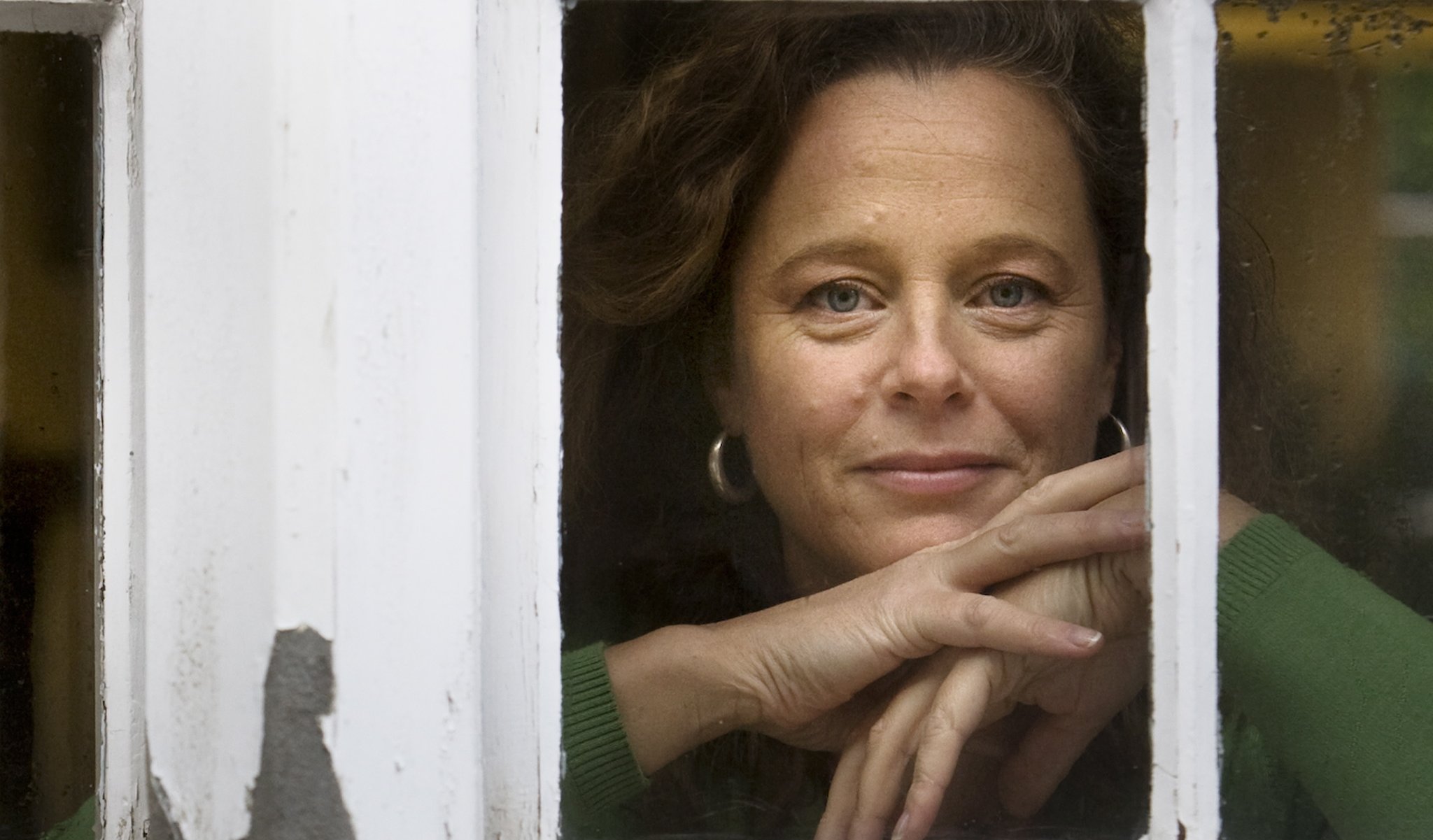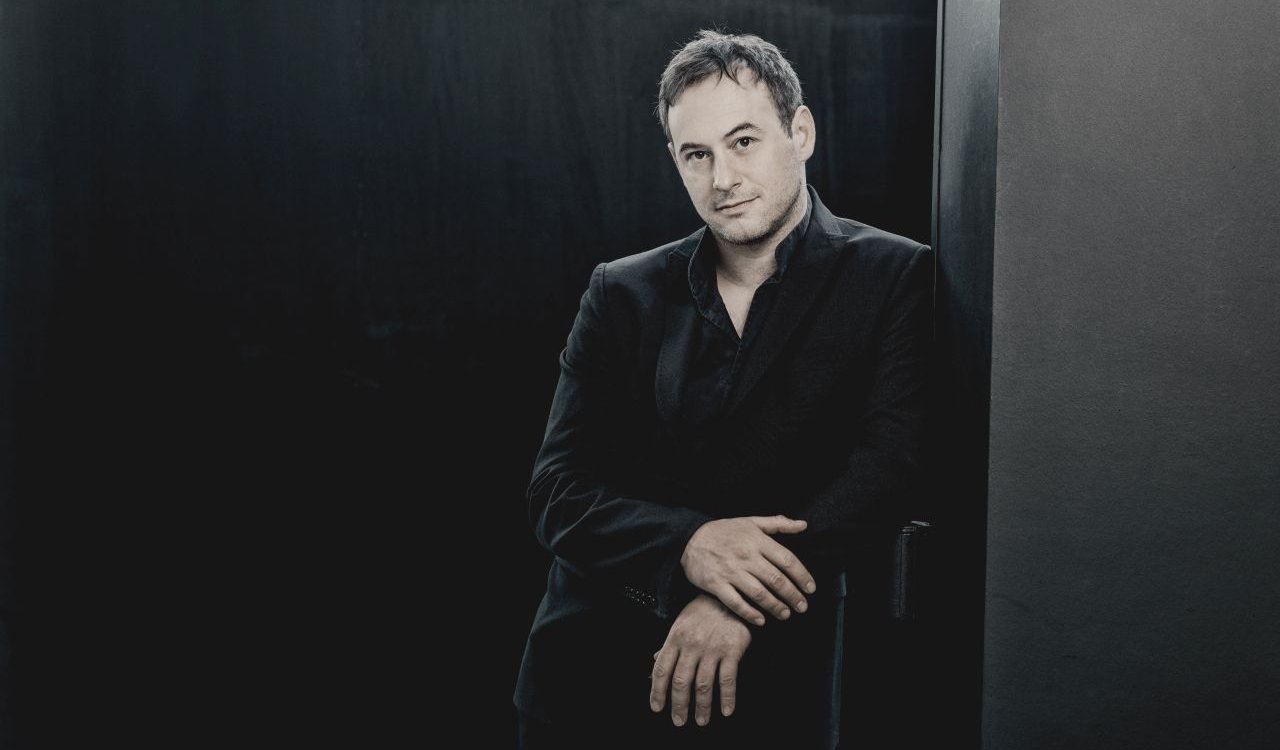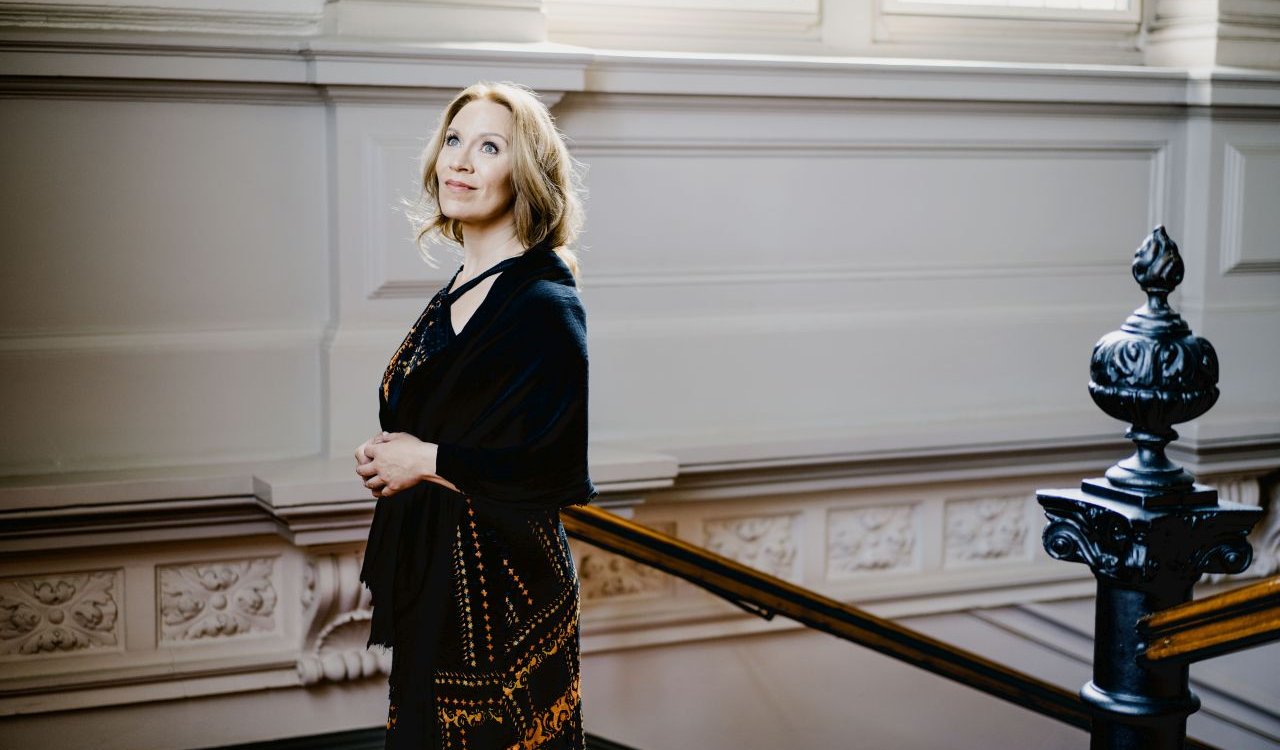


Program
Johann Sebastian Bach (→ bio):
Jauchzet Gott in allen Landen! (Exult in God in every land) – cantata, BWV 51
Georg Philipp Telemann (→ bio):
Overture-suite in B-flat major (“Nations”), TWV 55:G4
INTERVAL
Johann Sebastian Bach (→ bio):
Brandenburg Concerto No. 2 in F major, BWV 1047
Georg Philipp Telemann (→ bio):
Ino – dramatic cantata, TWV 20:41
Featuring
Artistic director
Soloist
- Carolyn Sampson (soprano)
- Fruzsina Hara (baroque trumpet)
With
- Eszter Mórocz (dance)
Baroque gestures
Costume designer
Other information
The event is about 2.5 hours long.
About the event
Virtuosity, heights, caricatures and mythology at the BFO’s early music concert. The ensemble is once again led by British specialist in Baroque music, Jonathan Cohen, and the period gestures are once again being created under the expert direction of Sigrid T’Hooft. The challenging soprano solo of Bach’s most popular cantata and Telemann’s composition Ino is sung by Carolyn Sampson, whose fresh tone, superb technique and subtle sensuality were highlighted by the critic in The Guardian. In the Bach cantata, as well as in the Brandenburg Concerto, the trumpet will play a prominent role. Once the first female trumpet student at the Liszt Academy, Fruzsina Hara now plays with some of the world’s leading orchestras. In addition to virtuoso solos, the evening will also reveal how Telemann saw the character and music of different nations.
Could there be a more appropriate choice for 29 September than Bach’s cantata, perhaps originally written in honor of St Michael? Of course, as the score indicates, the work is “et in ogni tempo”; i.e., it can be played at any time. This is the only Bach cantata written for soprano voice and trumpet solo. The opening aria is a virtuoso dialogue with violin. A strikingly melodic and expressive recitativo leads into the intimate plea of the second aria. The work concludes with a concerto-like chorale arrangement and a fugal, joyful alleluia.
At that time, Bach was the “mediocre” musical director of the St Thomas Church in Leipzig, after the “legendary” Telemann refused to take up the post. Among the hundreds of works by the immensely popular Telemann are several orchestral suites, also known as overtures after the opening movement. Even though the composer had not travelled the world, he was familiar with the characteristics of its peoples. In his play, nicknamed “Nations”, he captures the worlds of the impetuous Turks, the young and old Swiss, the Muscovites and the Portuguese.
Bach’s six Brandenburg Concertos, completed in 1721, represent the crowning achievement of Baroque concerto-production. In the second concerto trumpet, recorder, oboe, and violin form a special soloist group. In the opening movement, the soloists play the rhythmic theme in a variety of combinations. In the lamenting andante, the trumpet is silent, only the other three instruments sigh. Then in the finale, they reunite, almost completely eclipsing the accompanying string section. The work ends with dense, cheerful music.
Telemann wrote his dramatic cantata Ino at the age of 84. The story begins where Handel’s opera Semele ends. At Zeus’ request, Ino and her husband Athamas raised Dionysus, angering Hera. The goddess drives the couple mad: Athamas shoots one of their children, mistakenly thinks he is a savage while Ino jumps into the sea with the other. Zeus saves Ino and makes her a goddess. After a sensitive setting of the tossing in the sea, the cantata concludes with a hymn of Mozartian beauty and melody.
Did you know? Bach’s cantata premiered in Leipzig on September 17, 1730; Telemann’s overture suite was composed sometime prior to 1723, and his dramatic cantata in 1765; Bach presented his concert series, likely composed sometime earlier, in 1721 to Margrave Christian Ludwig von Brandenburg-Schwedt; the Festival Orchestra most recently performed Ino on April 28, 2012 (soloist: Christine Wolff, conductor: Reinhard Göbel); this will be the first performance by the BFO of the other pieces.
Contemporary events: Vitus Bering, the Danish mariner for whom the Bering Strait was later named, was in Russian service and returned to Saint Petersburg in 1730 after his First Kamchatka Expedition / the opera Artaserse by the German composer Johann Adolph Hasse premiered in Venice on February 11, 1730 / the German philosopher Christian Wolff, a leading figure of the early Enlightenment, was accused and found guilty of atheism in 1723, stripped of his university position and ousted from Halle / the French philosopher Denis Diderot completed the editing of the Encyclopedia in July 1765 / Holy Roman Emperor Francis I died in 1765, the husband of Maria Theresa and co-regent of the Habsburg eternal provinces / Persian Letters, a novel by the French author Montesquieu, was published in 1721 / the French painter Antoine Watteau painted his picture The Embarkation for Cythera in 1721 / the opera La Silvia, by the Italian composer Antonio Vivaldi, premiered in Milan in 1721